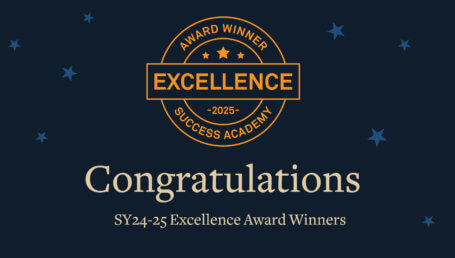
This post originally appeared on the Huffington Post Blog
When I think of the demands on teachers today, I picture the cover of the classic children’s folktale “Caps for Sale,” in which a mustachioed cap salesman falls asleep under a tree, wearing his entire stock of wares on his head. This image, unsurprisingly conjured by an elementary and middle school teacher of five years, suggests the staggering expectations policy-makers and the public have of teachers in the 21st century.
Teachers are expected to possess strong content knowledge, pedagogical expertise in rooms of diverse learners, and a heroic grasp of classroom psychology. They must close gaps in content mastery, develop students’ interpersonal skills, and create project-based learning experiences that require critical thinking and analytical reasoning. Of course, they are assumed to have artistic skill in designing inviting classroom environments and jaw dropping bulletin boards, as well as technical proficiency in integrating new media to make lessons engaging for the modern kid. They are to do all this and much more with a calm, cool demeanor, on a meager paycheck, and with minimal recognition–as teachers, our “caps” runneth over.
I spent four years teaching at Success Academy Charter Network, which recently came under attack in the New York Times for the incredible demands made of their teachers and students. And yes, Success is upfront about their unwavering commitment to excellence and setting a high bar for all involved, but what I found to be most staggering was the profound support offered to teachers to meet the demands of the day.
Artisanal lesson planning? Not necessary with Success Network curriculum specialists who develop world-class units and lesson plans centrally, then refine them in workshops built for teachers to differentiate for the unique learners in their care. Amateur travel agent? No longer required with a Success Network operations team to plan relevant, fun-filled field-trips for learners to engage with the world outside their classroom doors. Teachers as statisticians? Nope! Success hires student achievement managers to analyze classroom data and help teachers use this information to shape instructional decisions enabling all students to achieve mastery.
Since the inception of mass public schooling in the 19th century, America has added to teachers’ plates faster than we have reformed the systems surrounding them to provide reciprocal support. Teacher attrition is not solely a Success Network problem – it is a national crisis, with most new teachers leaving the profession before five years, and the legions who persist, consider similar course due to the unyielding challenges of the profession.
The Success Network is experimenting with ways to unburden teachers. Yet even with these innovative supports, the job is difficult, and many facets of the model still need improvement for teachers and students alike. But, should we allow perfect to be the enemy of great? Success schools are changing the lives of scholars daily through rigorously high expectations, and we will never waiver in our demand. Our work is hard and we need reporting to galvanize communities of educators to move solutions forward for kids. Success has many effective practices to share in a sector starved for guidance, and many positive testimonials from teachers bursting with inspiration. I was greatly saddened to find most of them absent from Ms. Taylor’s reporting – hopefully, in the future she’ll examine how we sort our caps with greater closeness.










